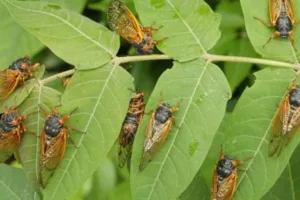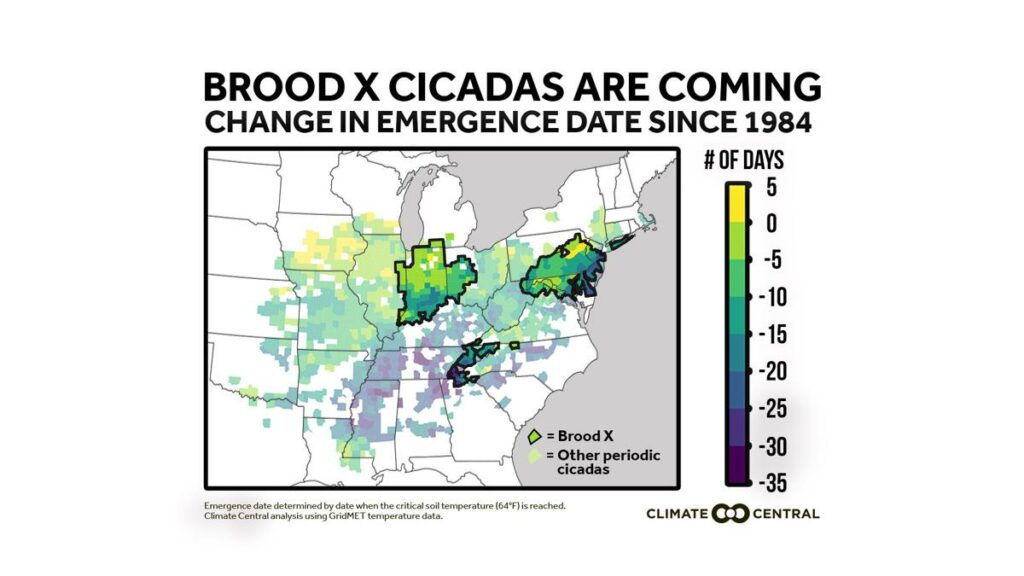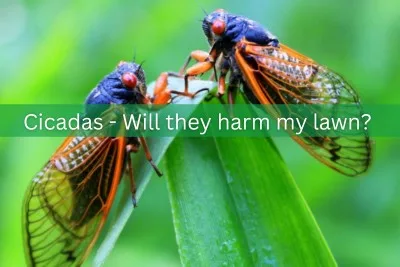You’ve probably heard about an impending insect invasion: a swarm of flying bugs called cicadas that are about to emerge from the earth in a nature show unique to the U.S.
These creatures, underground since 2004, will appear above ground in states along the east coast and Midwest starting in late April or early May.
Thankfully, this invasion should have a minimal impact on our joy of mowing. Here’s what you need to know:
When and where
The arrival of the so-called Brood X cicadas sounds like a scene out of B-movie horror film.
 For the last 17 years, these bugs have been feasting on the sap of tree roots underground. But now they are about to claw and climb their way to the surface, just as the soil temperature gets to the mid-60s. Once on solid ground and vegetation, the cicadas will then shed their outer skeletons, spread their wings, and start flying.
For the last 17 years, these bugs have been feasting on the sap of tree roots underground. But now they are about to claw and climb their way to the surface, just as the soil temperature gets to the mid-60s. Once on solid ground and vegetation, the cicadas will then shed their outer skeletons, spread their wings, and start flying.
You’ll know when they arrive. They’ll be loud and imposing: the cicada — which can grow to be two inches long — is the only bug who’s hum is loud enough to be heard over the sound of a lawn mower engine. And there will be millions of them.
The Brood X cicada is here for one purpose: to find a mate and start the process of hatching the next cicada population.
The swarm will be seen in:
- North Carolina
- Virginia
- Georgia
- Tennessee
- Kentucky
- Washington, D.C.
- Delaware
- Pennsylvania
- New Jersey
- New York
- West Virginia
- Ohio Michigan
- Illinois
- Indiana
The lifespan of a cicada is only about 2-4 weeks, so this unique natural spectacle will be over by late June. 2

Should I be worried about my lawn and landscaping?
According to entomologists, cicadas do not chew on grass, leaves, or shrubs.
Because cicadas cut into weak branches and twigs to lay their eggs, they can cause minor damage to trees that are young, already stressed from other health issues, or newly transplanted. Cicadas will look for larger trees such as oak, elm, and maple, and generally will leave smaller trees alone.
If you’re worried about a vulnerable tree or shrub in your yard, you can protect it with netting or other light coverings.
Experts do not recommend that you try and control the enormous cicada population with insecticides. It would be akin to using a garden hose on a forest fire. In fact, these chemicals would do more harm to birds, rodents, and other insects that are actually feasting themselves on the cicadas.
If you’re concerned about Brood X or have specific questions about how cicadas might affect your landscaping, reach out to an independent lawn care dealership or professional landscaper. They’ll be happy to help.

